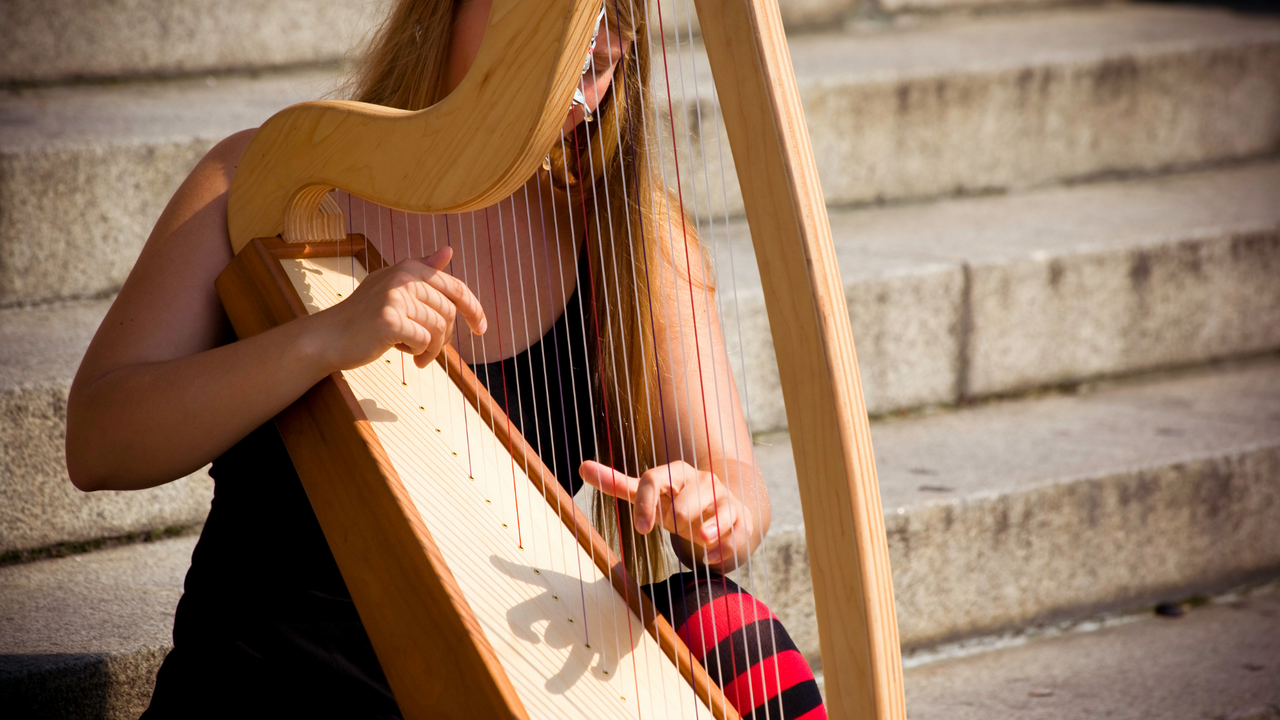How to Jumpstart Your Harp Playing Even When You’re Too Busy to Practice
Nov 30, 2022
By Anne Sullivan
December is a crazy time for every harpist. There are more concerts and performances and other playing opportunities in this one month than in most of the rest of the year combined. It’s stressful, for sure, but it can also be a time that accelerates your progress to that next level in your harp playing.
You may be wondering how you could possibly make any progress in a month when you barely have time to breathe in between schoolwork, musical performances and family time, let alone do your practice. The interesting paradox is that the more playing you must do, the more commitments you have to fulfill (within reason), and the more you can rise to the challenge, the more you will grow as a harpist and a musician.
There are some pitfalls you can fall into, though. To help you avoid them, I have some suggestions and tips that I gleaned from my own experience and that my students have found helpful, too.
The “Left It at Home” Pitfall or the “It’s in the Bag” Path to Progress
This one is so simple but it still trips up even the most organized harpists occasionally. Check your harp bag to make sure it has everything you will need when you leave the house: tuning key, tuner, spare strings, music stand light, maybe some scotch tape, and whatever else you might need. Now you can just grab your music and your harp bag, when you’re ready to go, along with your harp, of course.
Also double check your calendar now before the rush starts to be sure that you have all the correct days, times and places for your rehearsals and performances. It’s a good idea to have relevant phone numbers for each performance contact stored here too.
Learning how to be organized about these important details will help strengthen your reputation as a responsible musician and bring more playing opportunities your way.
The “No Practice Time” Pitfall or the “Practice Efficiently” Path to Progress
It’s very easy when you have a full schedule to let your practice time be taken over with other things. The best harpists learn how to preserve their practice time and use it wisely. Even if you aren’t able to put in the same amount of time as usual, doing your practice every day is crucial.
First, put your practice time in your calendar. You may want to ask a parent to help you find the best time to practice each day and to help you stick to your plan. You’ll find it much easier to stay on track with their support.
Then when you sit down to practice, do the biggest, hardest things first, or possibly just after your warmup. Give yourself a set amount of time for each thing you need to practice and use a timer if you need to in order to help you keep to your schedule. Here’s a real insider tip: when you’re finished your practice, before you get off the harp bench, write down your practice plan for the next day and leave it on your stand. That way you won’t waste time tomorrow trying to remember what you want to get done.
The “Have to Cram” Pitfall or the “Steady Steps” Path to Progress
If you’re doing your practice each day and keeping track of what you need to work on, you should be making steady progress on all your music. Why is it so important to keep track of what you're practicing each day? Because if there is a piece that always lives in the back of the pile on your music stand, you may find yourself trying to cram it, to learn it at the last second. Cramming may work for a history test, although it’s clearly not ideal, but it doesn’t work for harp practice. Learning to play a piece well takes time. Plus, the stress of cramming can take away energy from some of the other pieces you need to learn too.
Learning to manage your practice time and balance your musical responsibilities is a huge step on your path to progress, and there’s an easy way to do it. Simply make a list of all the pieces you need to learn in the next month or so. Next to each piece write its “due date,” the day you have to have it ready. Keep the list by your music stand and put a check mark by each piece that you practice each day. You’ll notice right away if a piece is slipping through the cracks.
Once you know you are on track with your harp playing, you’ll be ready to enjoy all the good things that come your way this holiday season. Have fun!
GET OUR BLOG POSTS DELIVERED WEEKLY
We hate SPAM. We will never sell your information, for any reason.


